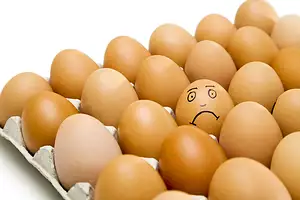When it comes to snacking, it is easy to have things get out of control. Pay attention to these specific situations so that you can avoid falling into the common traps of snacking too much.
1. Peer pressure snacking.
Whenever a group of people get together, there are typically snacks. Often the yummy dessert variety. Don’t be pressured into trying the latest baked goods from your coworkers or the cookies your neighbour is offering.
Although the occasional indulgence is not going to be a problem, it’s important to make sure your social time is focused on healthy habits. Suggest going for a walk with a friend, rather than out for dessert. Or make sure you are bringing healthy snacks to share, so that you can not only set an example, but more easily resist temptation.
2. Snacking while drinking.
Many people reach for a snack while drinking alcohol, it just seems to go together well. The problem is that most bars don’t offer too many healthy snack options. If you must reach for the salty chips and nuts, control your portions.
Even better, choose raw peanuts when you can. They contain important nutrients like protein, magnesium, zinc, vitamin B, and iron, without any added salt. When you have to peel the shells yourself, you will eat more slowly and consume less. Even better, choose edamame beans, which are high in protein and fibre and contain a nice amount of thiamin, folate, and iron. Because they also need to be shelled from their pods, they take more time and effort to eat, so you eat less.
3. Snacking when you walk in the door.
Transition times, like when we arrive home from work or school, are times when we are often likely to reach for a snack. When dinner is still several hours away, or takes time to prepare, reaching for the fridge is a common move. The hungrier we are, the more likely we are to over-snack or pick junk foods.
Make sure you have fresh fruit handy, and add a cup of tea, so that you do not feel starving. Keep healthy snacks ready to grab in your fridge. And, starting with a glass of water can sometimes help stave off the hunger pangs. You might just be thirsty!
4. Emotional snacking.
When we feel unsettled, bored, or anxious, grabbing a snack is a popular cure. We get a moment of short-lived pleasure, but the mood enhancement doesn’t last, and can lead to unhealthy habits.
Chewing gum may help break this habit. If you really want a snack, make yourself wait 15 minutes or so, the feeling may pass. Other techniques that can prevent you from grabbing unhealthy snacks is to do a set of crunches or squats, or go for a brisk walk.
5. Nighttime snacking.
If you eat dinner too early or don’t get enough calories and protein, you will find that you are hungry again at bedtime. Or, perhaps you have just developed a habit of snacking before bed. Either way, this can put you in a dangerous position. Especially if you choose snacks that are high in fat, sugar or salt, or you simply eat too much.
If you must snack before bedtime, opt for a light, healthy snack. A piece of dark chocolate can be very satisfying because it is a combination of sweet and bitter. Eat a substantial, healthy, balanced dinner, and you may be more likely to make it until bedtime.
Avoid these snacking pitfalls and stick to your healthy habits!










Comments